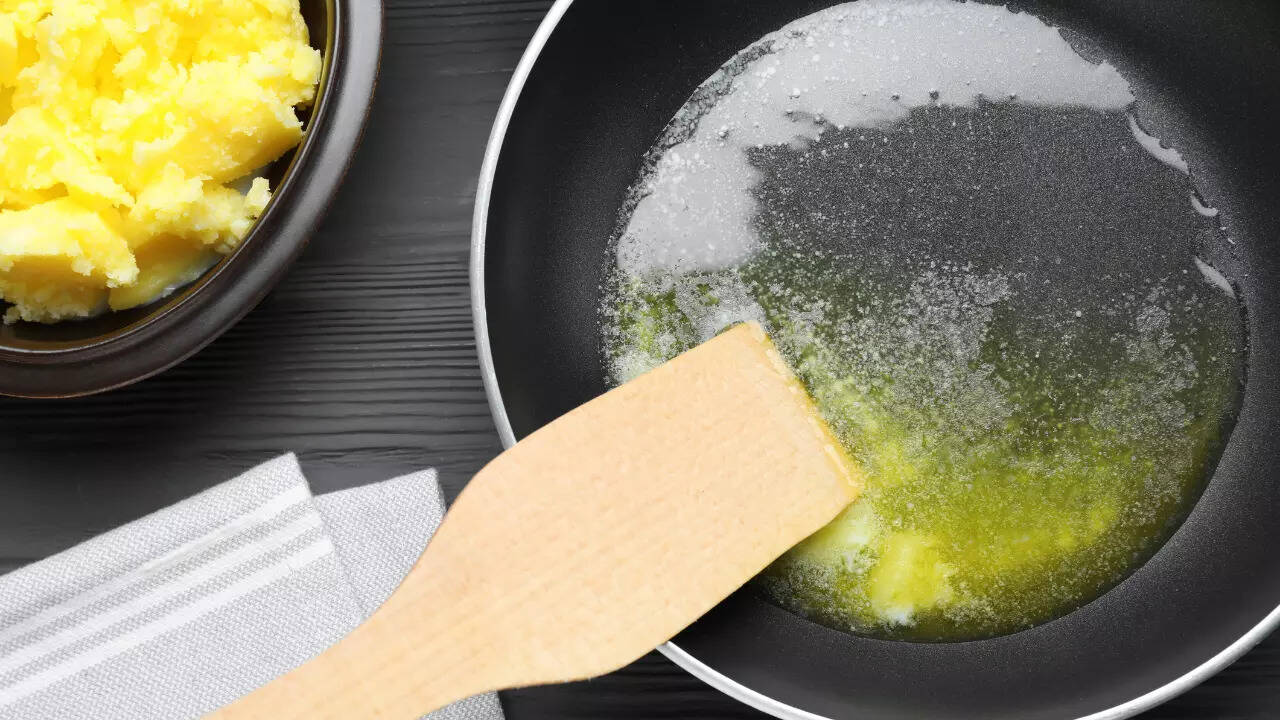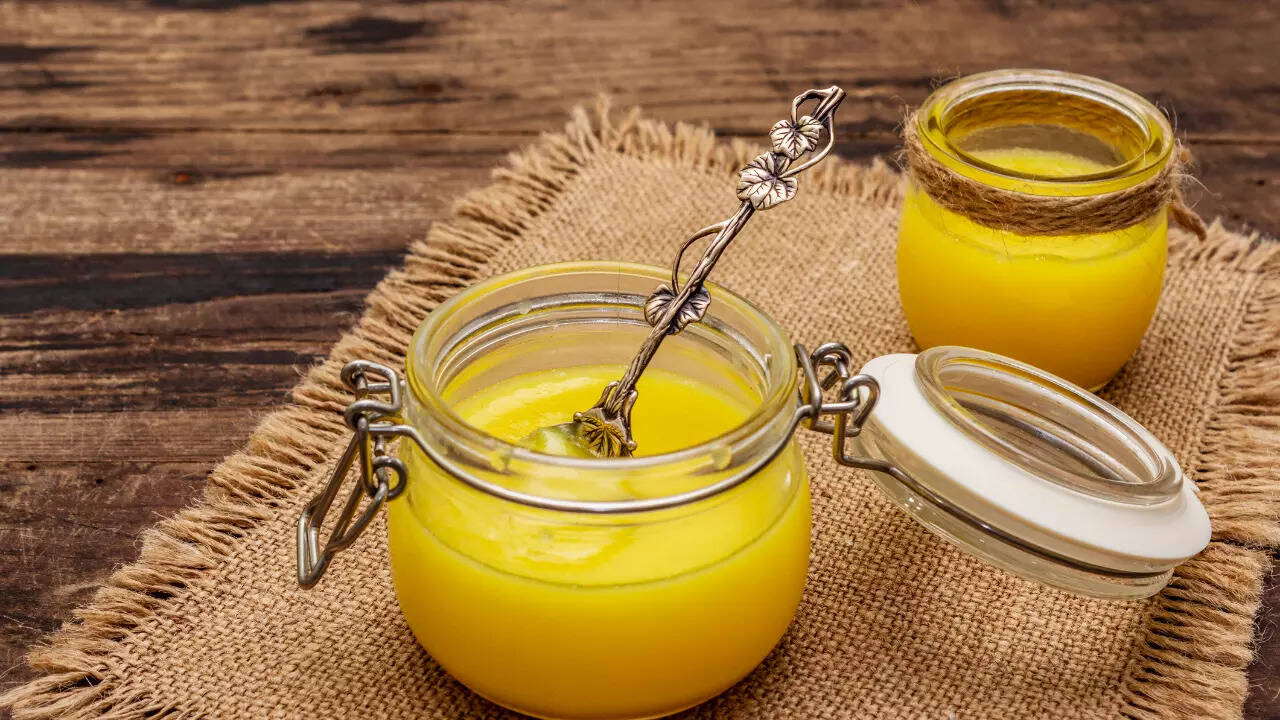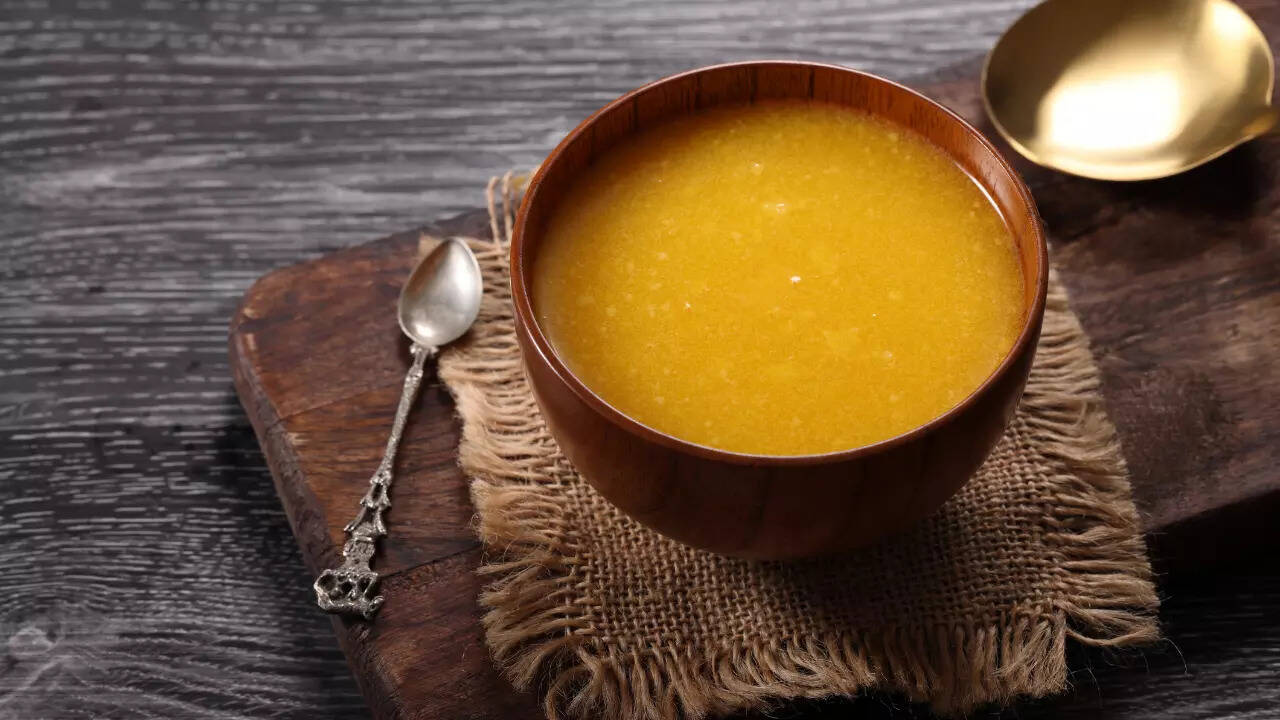There is nothing like a crisp paratha cooked in aromatic ghee, or a dallop of ghee on steaming rice or a plate of Ghee Podi Idli. India’s love affair with ghee is timeless. In a culture that revers its cattle, ghee is not only food but also an offering to the Gods. Ghee has been India’s passport to robust health since time immemorial and has been an integral part of Ayurveda which has a deep rooted influence on the country’s culinary culture. Ghee fell from favour around two decades ago when it was dubbed as a source of unhealthy saturated fat and the main culprit behind cardiovascular diseases. But with more and more research proving seed oils and other vegetable oils to have long lasting negative impact on human health, ghee is back in limelight.

Ghee is an integral part of every Indian home and is made by churning milk fat to produce butter and then simmering butter on low flame to remove water and milk solids, leaving behind a golden liquid. Unlike regular butter, ghee can be heated at high temperatures without breaking down, making it ideal for cooking. It is also lactose-free, which makes it suitable for people who are sensitive to dairy.
A powerhouse of nutrientsWhen consumed wisely, ghee provides a range of health benefits. It is rich in fat-soluble vitamins such as A, D, E, and K, which support the immune system, bone health, and overall wellness. The importance of ghee can be imagined from fact that it has been an integral part of almost every other Ayurvedic medicine. Ghee has been traditionally believed to aid digestion and support gut health. Its content of butyrate, a short-chain fatty acid, may help maintain the lining of the intestines and reduce inflammation. Ghee can also help the body absorb nutrients from other foods and is known to keep skin and hair nourished when included in the diet.Can ghee cause heart diseaseAny source of fat when taken in excess can cause obesity and related health issues. For most people, consuming one to two tablespoons of ghee each day is considered safe and beneficial. This amount provides the advantages of ghee without adding too many extra calories. However, consuming ghee in large quantities can have drawbacks. One tablespoon of ghee has around 12–135 calories and hence overindulgence may contribute to weight gain if not balanced with physical activity. It is also rich in saturated fats, which, if consumed excessively, can increase LDL or bad cholesterol and raise the risk of heart disease. Some people may experience digestive discomfort such as bloating or diarrhea when they eat too much ghee. Individuals with liver conditions should be cautious, as consuming high amounts of fat can strain the liver.]]

Who should completely avoid gheeCertain people may need to limit or avoid ghee altogether. Those with milk allergies should avoid ghee, even though it is mostly free of lactose. People with high cholesterol, heart disease, obesity, type 2 diabetes, or liver issues should consult a healthcare professional before including ghee in their regular diet.The right way to consume ghee
- To enjoy ghee without overdoing it, try these tips:
- Stick to one to two tablespoons per day instead of pouring it freely into your meals.
- Replace other oils or butter in cooking with ghee for a rich taste and better nutrient absorption. But ensure to limit quantity.
- Drizzle a teaspoon over cooked vegetables, grains, or lentils for flavor and added vitamins.
- Combine ghee with fiber-rich meals such as vegetables and whole grains to support digestion and avoid excessive calorie intake.
- Stir a small amount of ghee into herbal teas or warm milk for a soothing, nutrient-rich drink.

Rules for ghee consumptionDos
- Quality of ghee is extremely important, ensure what you buy is pure, unadulterated cow ghee.
- It must be consumed in limited quantities as it is a calorie dense food.
- Those having health conditions such as cholesterol, liver health, or diabetes should consult their doctor before regular consumption.
- It should be stored in in a cool place in airtight container to maintain freshness.
Don’ts
- Don’t overuse ghee in frying or deep-frying foods, as it adds excessive calories.
- Don’t rely on ghee as the sole source of healthy fats; include nuts, seeds, and oils for balance.
- Don’t consume large amounts in one sitting, as it can cause digestive discomfort.
- Don’t ignore medical advice if you have health conditions that limit fat intake.
Ghee can be a nourishing and flavorful part of your diet when used thoughtfully. By understanding the right amount to consume and taking into account individual health considerations, you can enjoy its benefits safely. Incorporating practical daily habits and following simple dos and don’ts ensures that ghee remains a healthy addition to your meals. It is always a good idea to consult a healthcare provider if you have any medical concerns before making significant dietary changes.Thumb and Embed Images Courtesy: istock

